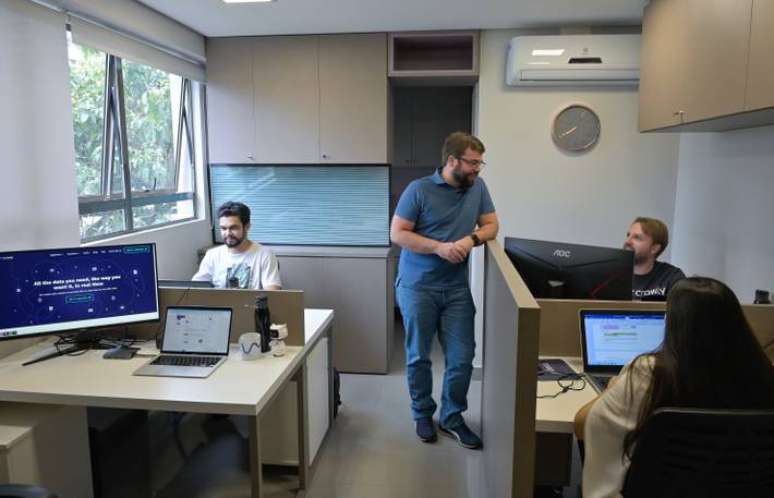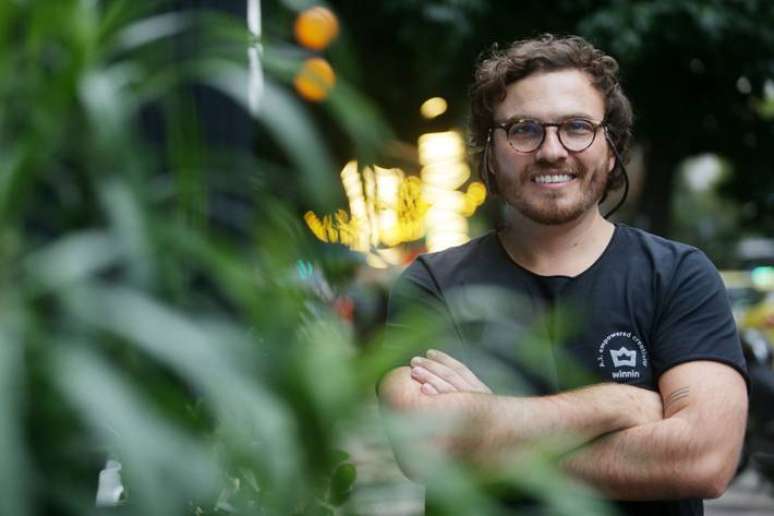The environment improves, productivity remains, and quality professionals are attracted and retained, companies say; the transition is difficult and not suitable for all professionals or businesses
What do companies that have already tried the four-day workweek think of the results?
OR Stadium revisited the routine of two companies that cut working hours and they gave an interview about it a year agoto try to understand the evolution and errors of the process.
Winnin, who analyzes audience behavior in relation to online video, began testing shortened travel in 2021. Its working pattern is 100% remote.
Crawly, a software, automation and data consultancy company, has been experimenting with the four-day week since 2017. The work there is hybrid.
Both companies shut down work on Fridays.
Fewer meetings and more organized routines
“It doesn’t work less. It actually works neater,” says Gian Martinez, CEO of Winnin. According to him, the model alone did not guarantee benefits. All employees had to engage.
Winnin went through an adjustment process that involved training and courses, such as slow communication and meeting optimization.
All this to create a more focused and disciplined culture. The number of meetings decreased to avoid spending hours on professional conversations which resulted in wasted time. “We train for a smarter way to work,” she says.
All over the world, too many meetings are one of the obstacles to ensuring productivity. On average, employees are able to devote 18 hours a week to such tasks, according to research conducted by the University of North Carolina in the United States.
“Can’t we organize shorter, more efficient meetings, with fewer participants, with a clearer agenda so that people don’t get distracted?” suggests Renata Rivetti, director of Reconnect – Happiness at Work and ambassador of the 4 Day Week Global initiative in Brazil.
Some employees have not adapted
It wasn’t just the way of communicating that was rethought at Winnin. Halfway through, Martinez noticed that not all employees approached the model.
“Some people have been more successful than others,” she recalls. This made it clear that flexible working needs are not the same for everyone. At the time of the pilot project in 2021, there were 90 employees. Today the number has dropped to 70.
But it hasn’t meant a drop in revenue, engagement, delivery and team well-being, says the CEO.
The company’s revenue has doubled, productivity hasn’t changed, and workers are happy, says Martinez.
html[data-range=”xlarge”] figure image img.img-e1d896fa4e5f7c27bcb05471c33d85e4dklfuyca { width: 774px; height: 516px; }HTML[data-range=”large”] figure image img.img-e1d896fa4e5f7c27bcb05471c33d85e4dklfuyca { width: 548px; height: 365px; }HTML[data-range=”small”] figure image img.img-e1d896fa4e5f7c27bcb05471c33d85e4dklfuyca, html[data-range=”medium”] figure image img.img-e1d896fa4e5f7c27bcb05471c33d85e4dklfuyca { width: 564px; height: 376px; }HTML[data-range=”small”] .article__image-embed, html[data-range=”medium”] .article__image-embed { width: 564px; margin: auto 0 30px; }
Winnin assesses employee mental health through organizational climate surveys, semi-annual assessment methods with weekly and monthly feedback and follow-ups.
Martinez says he uses his day off to organize the week. Other people take advantage of the break to take classes and even code, but no assignments are charged by the company, according to the CEO.
The model attracts and retains good market professionals
For companies, the four-day week has the benefit of attracting and retaining good professionals. Thus, small and medium-sized businesses are able to compete with the giants for hiring talent. It’s easier to apply the model in smaller teams.
João Drummond, CEO of Crawly, considers quality of life and talent retention as the main bonuses of the four-day week.
Both managers agree that the “nobody wants to leave” culture is an argument in favor of continuing the experiment.
The engineering team was the pioneering sector of the Crawly experiment in 2017. Four years later, the test was extended to other areas of the organization: marketing, administration and commercial.
As in Winnin, productivity has been maintained and there has been an increase in the level of professional satisfaction.

Measurements are made with qualitative, quarterly follow-ups and individual conversations, which are still possible due to the size of the staff, around 30.
However, the transition has not been smooth and seamless. Initially, the day off was Monday for some employees and Friday for others, with alternating lessons.
After a period, Drummond realized that the strategy was not entirely to his liking, as most preferred the sixth. The adjustment has been made. Today there is scale only in the support industry.
In the event of an emergency, the people involved in the matter are summoned to resolve the matter, even on an extra day off and remotely.
Future of the 4 day week in Brazil
Winnin and Crawly develop activities that encourage adoption of the four-day week. Other sectors, such as retail, trade and basic services, are still expected to face resistance. This is because they are activities that require 24 hours a day, seven days a week. A hospital, for example, requires multiple strategies to consider relocation.
On the other hand, professionals in the fields of advertising, law and accounting, for example, can join more easily.
“We are seeing that there is interest from all segments, even from areas that we did not imagine. In Portugal, even nurseries are participating in the experimentation”, describes Renata Rivetti.
The mindset of the workaholic needs to change
According to the testing ambassador in Brazil, the model still has to overcome two challenges related to behavioral changes.
The first is mindset. “We still like the workaholic profile, as hours worked are thought to have something to do with productivity,” he explains.
The second point is effort. For the shortest path to be successful, it is recommended to redesign the working model with an appropriate methodology.
“If people today are overworked and we take one more day off, they’re likely to become more anxious and overworked. So, they need to change their schedules and priorities,” Rivetti points out.
4 Day Week Global and Boston College, in partnership with Brazil’s Reconnect Happiness at Work, plan to test this new model in other Brazilian companies starting in November.
The experience should last until May 2024. The model adopts the 100% salary system, with 80% of the working time, maintaining 100% productivity.
From the results, the companies decide whether or not to continue with the reduced trip. How many and which companies will participate have not been disclosed because registrations are still open
Tips for companies that want to implement the model
- Understand the particularities of your employees, talk to people individually. Find out if everyone is willing to compromise. Commitment and conviction are required for the test to work.
- Know that the four-day week won’t fix corporate culture mistakes. Goals, objectives and communication must align.
- Study, dialogue and exchange stickers with the top management of companies that have already adopted the model. Understanding market momentum prevents a failed attempt.
- Conduct organizational climate surveys and assess team stress rating.
- “Don’t assume it will work for every business,” warns Gian Martinez. In some cases, implementation can be even more difficult than usual, and your organization may not be ready to make the transition.
- Don’t give up on courses and training. Culturally, people are used to the classic hours of 9:00 to 18:00, Monday to Friday. Redesigning the working model requires new repertoires, discipline and concentration.
Source: Terra
Ben Stock is a lifestyle journalist and author at Gossipify. He writes about topics such as health, wellness, travel, food and home decor. He provides practical advice and inspiration to improve well-being, keeps readers up to date with latest lifestyle news and trends, known for his engaging writing style, in-depth analysis and unique perspectives.







![It All Begins Here: What’s in store for Monday 20 October 2025 Episode 1288 [SPOILERS] It All Begins Here: What’s in store for Monday 20 October 2025 Episode 1288 [SPOILERS]](https://fr.web.img4.acsta.net/img/61/5b/615b86ae565677594436e6cf1c0294ba.jpg)

